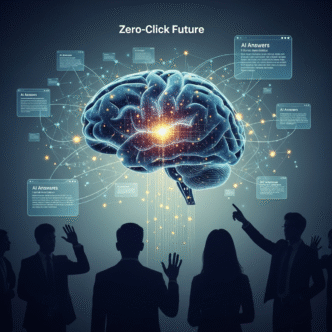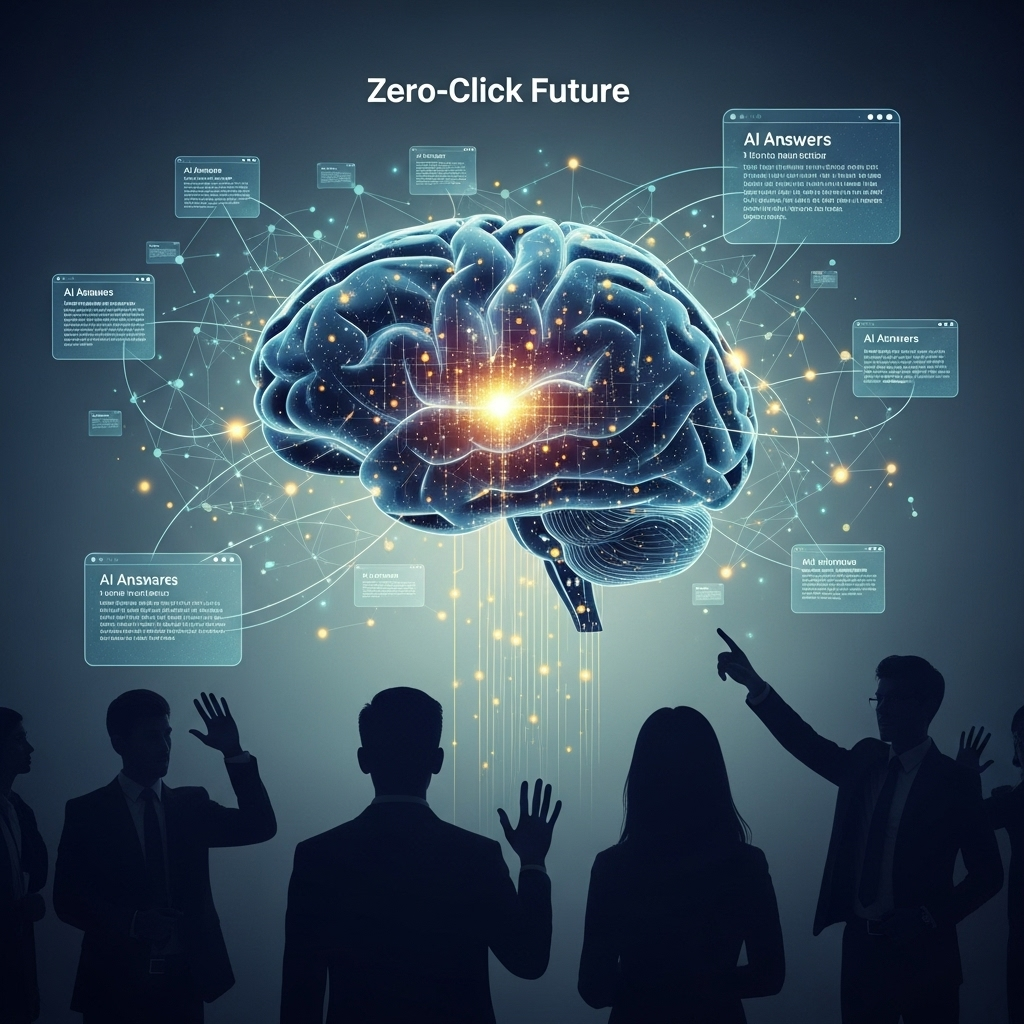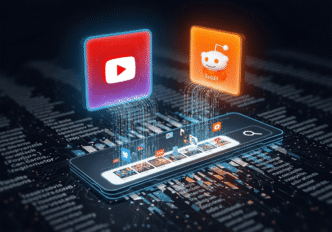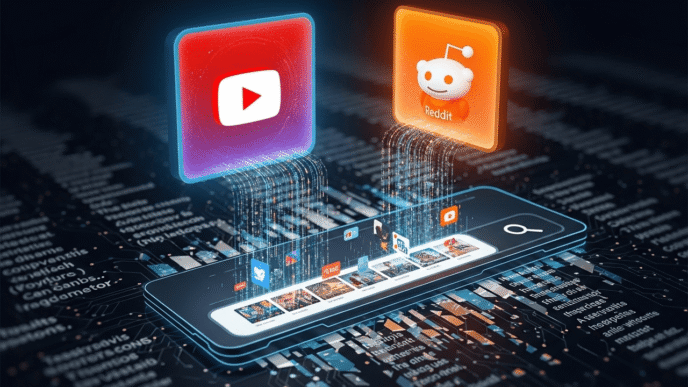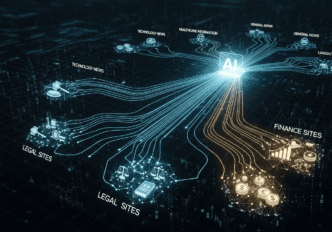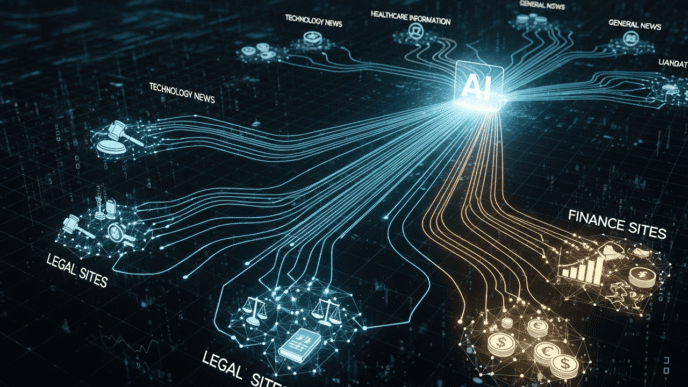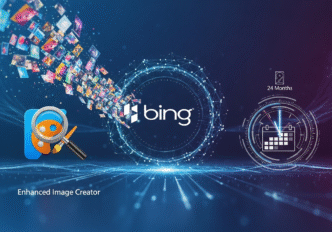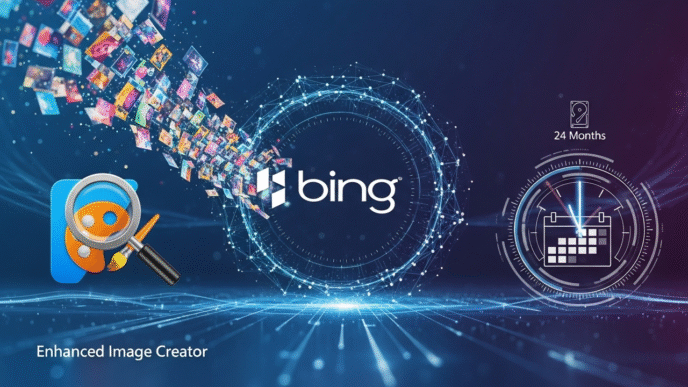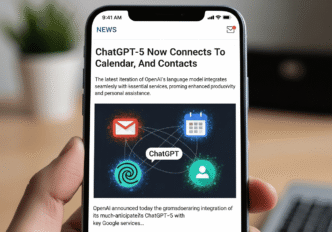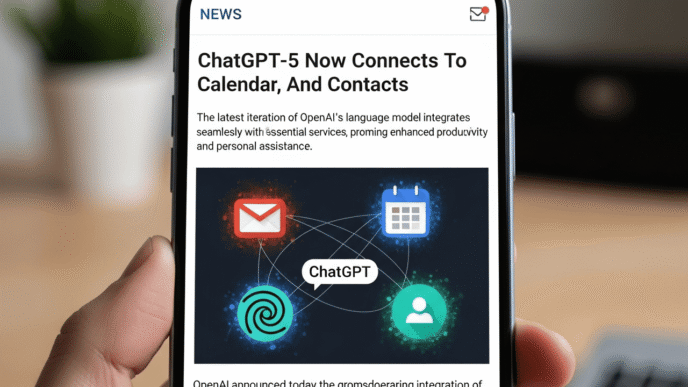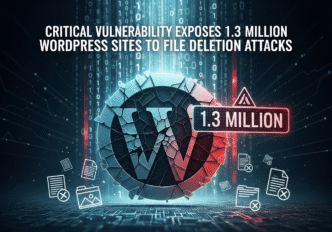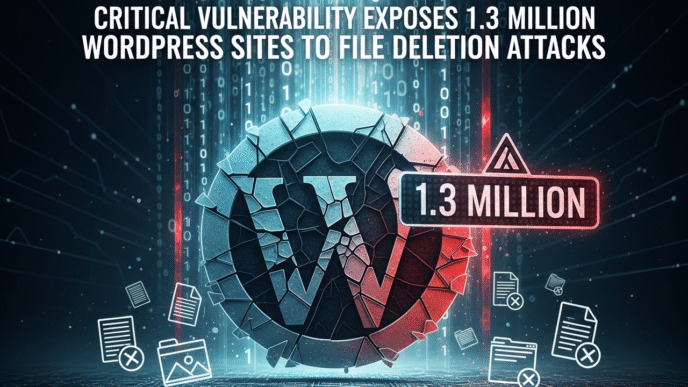Industry authorities warn of fundamental shift in digital marketing as traditional website visits plummet
August 16, 2025 — The digital marketing industry is facing an unprecedented crisis as artificial intelligence fundamentally reshapes how users search for and consume information online. SEO experts are sounding the alarm about what they’re calling the “invisible web” — a growing phenomenon where AI-powered search engines provide answers directly without sending users to websites, effectively making vast portions of the internet invisible to traditional traffic metrics.
Table of Contents
Toggle
The Scale of the Transformation
The numbers paint a stark picture of the changing landscape. About 80% of consumers now rely on “zero-click” results in at least 40% of their searches, reducing organic web traffic by an estimated 15% to 25%, according to recent research by Bain & Company. Even more dramatically, a SparkToro study found that 58.5% of searches on Google end without a click.
This shift is being driven by two major forces: traditional search engines like Google implementing AI-generated summaries (AI Overviews), and the rise of dedicated AI chatbots like ChatGPT and Perplexity that function as answer engines rather than search engines.
AI Overviews Leading the Charge
Google’s AI Overviews have become a primary driver of the zero-click phenomenon. 13.14% of all queries triggered AI Overviews in March 2025, up from 6.49% in January 2025, according to Semrush’s analysis of over 10 million keywords. When these AI-generated responses appear, they occupy significant real estate on search results pages — sometimes taking up half the screen on both desktop and mobile devices.
The impact is particularly severe for informational content. Nearly 40% of informational queries now generate an AI-powered answer directly on the results page, while research shows a 34.5% decrease in click-through rate when an AI Overview appeared.
Industries in the Crosshairs
Certain sectors are experiencing disproportionate impacts. Science (+22.27%), Health (+20.33%), People & Society (+18.83%), and Law & Government (+15.18%) are the industries experiencing the largest share growth of AI Overviews, indicating these high-trust, information-dense categories are becoming increasingly dominated by AI-generated answers.
The Gartner Prediction: A 25% Traffic Cliff
Adding weight to these concerns, technology research firm Gartner made a bold prediction earlier this year that “by 2026, traditional search engine volume will drop 25%, with search marketing losing market share to AI chatbots and other virtual agents”.
Alan Antin, Vice President Analyst at Gartner, explained the rationale: “Over 8 billion searches happen per day. So even with 100 million ChatGPT users, you might say, ‘Oh, you’re never gonna get there unless you see all kinds of other things come into the market.’ And the way we got to this potential decline in search traffic, is we have yet to see major companies who control a lot of the access to the internet besides Google, do anything in this space.”
The prediction suggests that if major technology companies like Apple integrate AI assistants more deeply into their devices, the shift away from traditional search could accelerate rapidly.
The SEO Industry’s Response
The changes have left many SEO professionals grappling with fundamental questions about their industry’s future. Michael Bonfils, a 30-year SEO veteran, described current conditions as “the worst time since 2019 during the pandemic,” noting that “click through rates down, volume down, CPC’s up” are creating a perfect storm where “ROI is getting hit.
The challenge extends beyond just lost traffic:
“Our model, our SEO business model, has been based on keywords data, around keywords, and strategy around keywords. Now keywords are gone. So what is replacing keywords and how are we going to do this from this point forward?”
— Michael Bonfils, 30-year SEO veteran
Adaptation Strategies Emerge
Despite the challenges, industry experts are developing new approaches to remain visible in this AI-dominated landscape:
Essential SEO Tips for the Zero-Click Era
1. Optimize for AI Citations Companies are now focusing on creating content that gets cited in AI responses rather than just ranking in traditional search results. Research shows that when users see AI summaries, they sometimes “decide to check the cited results in the AI-generated box”.
2. Implement Structured Data Technical SEO practices like schema markup are becoming more crucial for helping AI systems understand and cite content appropriately. Use clear headings, bullet points, and FAQ formats that AI can easily parse.
3. Track Multi-Platform Visibility SEO professionals recommend monitoring “brand mentions across” multiple platforms and AI systems to understand their “generative visibility footprint” rather than focusing solely on traditional traffic metrics.
4. Prioritize Quality and Authority Content creators must “focus on producing unique content that is useful to customers and prospective customers” that demonstrates “expertise, experience, authoritativeness and trustworthiness”.
Zero-Click vs. Traditional Search: A Tale of Two Paradigms
The fundamental difference between zero-click and traditional search represents more than just a technological shift—it’s a complete reimagining of how information flows online.
| Traditional Search Model | Zero-Click AI Model |
|---|---|
| Users click through to websites | AI provides direct answers on SERP |
| Traffic drives ad revenue | Content gets cited without visits |
| Keywords determine visibility | Context and authority matter more |
| Rankings equal success | Citations and mentions define success |
| Publishers control user experience | AI platforms curate the experience |
This comparison reveals why the shift is so disruptive. Where traditional search created a symbiotic relationship between search engines and publishers, the zero-click model potentially breaks this connection, creating what experts term the “invisible web.”
The Invisible Web Phenomenon
The term “invisible web” reflects a new reality where websites may have their content summarized and cited by AI systems without users ever visiting the actual site. This creates what experts call a “blind spot” for businesses — they may influence purchase decisions without knowing it, as “users can see a company’s content without the company knowing it” and sales may appear as “direct” visits rather than organic ones.
Expert Opinion: Is This the End of SEO as We Know It?
While the data paints a concerning picture, industry veterans offer differing perspectives on what these changes mean for the future:
The Optimists argue that adaptation is possible:
“Zero-click searches reduce traffic to websites, but they offer a major branding opportunity. If your content is featured in AI-generated answers, your brand can earn visibility and trust, even when users don’t click.”
The Realists acknowledge the fundamental shift:
AI and zero-click search don’t mean the end of SEO—they mean the reinvention of it. SEO is no longer just about being found; it’s about being selected as the most relevant, trustworthy answer.”
The Skeptics question the predictions: Some analysts point out that Gartner’s track record isn’t perfect. The company has made “wildly inaccurate predictions before,” including a 2016 forecast that more than 3 million workers would be supervised by “robobosses” by 2018—a prediction that never materialized.
My Analysis: The truth likely lies somewhere between these perspectives. While zero-click searches are undeniably growing, the complete elimination of website visits seems unlikely. Users still need to take actions—make purchases, sign up for services, or access detailed information—that require visiting actual websites. The key is adapting to a world where the customer journey increasingly begins with AI-mediated discovery rather than traditional search results.
Video Content Gains Ground
One notable trend is the increased prominence of video content in search results. Commercial keywords that present a video on the SERP had a 24% increase from October 2024 to January 2025, suggesting that platforms like YouTube, TikTok, and Instagram may be capturing some of the traffic lost from traditional web searches.
Industry Outlook: Adaptation, Not Extinction
“If you’re searching for ‘things to do in nashville this weekend with friends, we’re big foodies who like music’ ahead of an upcoming trip, AI Mode can show you restaurants with outdoor seating based on your past restaurant bookings and searches.”
This quote from industry research illustrates how AI search is becoming increasingly personalized, potentially creating new opportunities for brands that can position themselves strategically across multiple touchpoints in a user’s digital ecosystem.
While the changes are dramatic, most experts don’t believe this spells the end of SEO or web traffic entirely. Instead, they argue for a fundamental shift in approach:
“I think more than any other company, we prioritize sending traffic to the web…You will see us five years from now sending a lot of traffic out to the web. I think that’s the product direction we are committed to.”
— Sundar Pichai, Google CEO
This statement from Google’s leadership suggests that even as AI transforms search, the company recognizes the importance of maintaining the web ecosystem that ultimately feeds their AI systems with fresh, authoritative content.
As the digital landscape continues to evolve, businesses and marketers face the challenge of adapting to a world where traditional metrics like website visits and click-through rates may become less relevant than brand mentions in AI-generated responses and citations in answer engines. The companies that successfully navigate this transition will be those that embrace the new reality of AI-mediated search while continuing to create genuinely valuable content for their audiences.
The transformation of search represents one of the most significant shifts in digital marketing since the advent of Google’s PageRank algorithm. As AI continues to evolve, the definition of online visibility itself is being rewritten, forcing an entire industry to reconsider its fundamental assumptions about how people discover and consume information online.
Related posts:
- AI Search and SEO: How the Industry is Navigating a “26-Mile Sprint”
- From Algorithms to AI Agents: The 2026 SEO Forecast Industry Leaders Are Preparing For
- Google Removes SEO Reference Local Ranking Documentation: What This Means for 2025
- Google AI images PageRank 2025, Google search updates, AI image SEO, Google algorithm news

